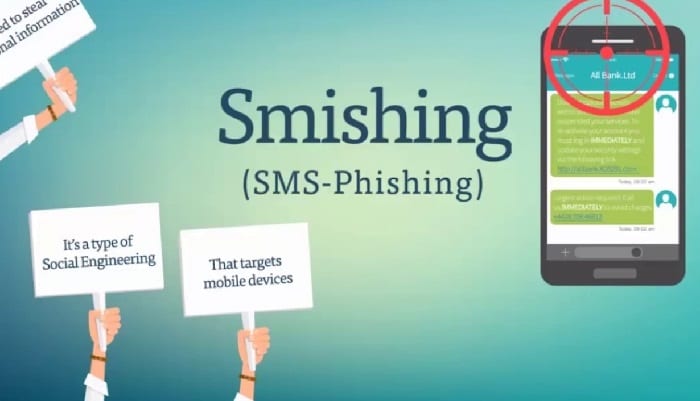“Phishing,” that’s one term we’ve all come across enough times to understand what it is. And it seems scam artists, nowadays, are finding it hard to win people’s trust through those fraudulent emails. Furthermore, email service providers such as Google and Yahoo are easily getting the better of them, shutting them down. Those criminal minds, however, just don’t seem to learn. They are now targeting their potential victims directly on the phone through this new scam called “smishing.”
What is smishing?
Smishing, as the name suggests, is more or less similar to phishing, except sent via SMS, instead of email. Scammers send a fraudulent message which might appear to be a warning from your bank about an unauthorized charge. They, for example, ask you to respond quickly with your personal information, and bank details, so as to block any further charges. They may also ask you to click on a link. And if you get panicked and do as they ask, you’re doomed.
Not just to swoop your bank balance, scammers may also use smishing to steal your identity, which may cause an even bigger loss to you. They can even blackmail you if you provide them with sensitive information.
Experts say smishing scams have been around since as early as 2008, but have become more prevalent now. They’re also popping up on all sorts of messaging apps, and not just simple text messages. So you’ve to be extremely careful to stay safe.
How to stay safe from smishing scams?
Straightforward, you can’t avoid, or block smishing messages entirely. But there are ways that can help you stay safe. The best possible way is to be vigilant of suspicious text messages. Remember, banks never ask you for your personal information, and other confidential data like username, password, or PIN. If you receive any such SMS, better delete it right away. And if you believe it may be a genuine one, you should reach your bank customer services and verify if they’ve sent anything like that. Always use the “official” published contact phone number of your bank and NOT the one provided in the smishing text.
Some scammers have even succeeded to make their smishing messages come to you from a saved contact of yours. So if you get a weird message from a friend, it’s a good idea to call them back on the phone and check if they actually sent the text.
Another handy way to stay safe from cyber crimes is to use different passwords for every single account of yours. From your bank’s website and social media apps to your email account and phone lock code, make sure you’re not repeating the same password again and again. Also, consider enabling two-factor authentication and keep changing your passwords every few months, or whenever you feel it may have been compromised. We also recommend you to use a password manager, as they may help you remember your passwords, and generate new ones when you feel like changing them.
Do you use a password manager? If you do, we’d like to know which one, and why you use that particular password manager. Tell us in the comments below.











